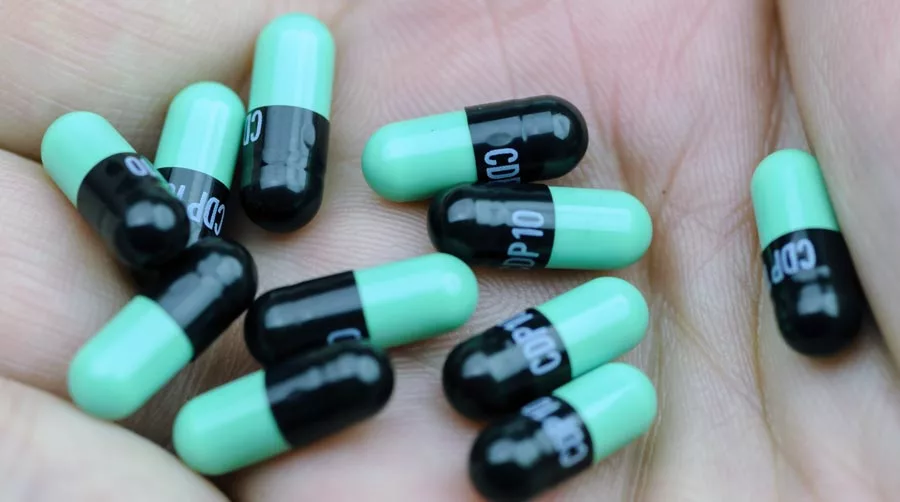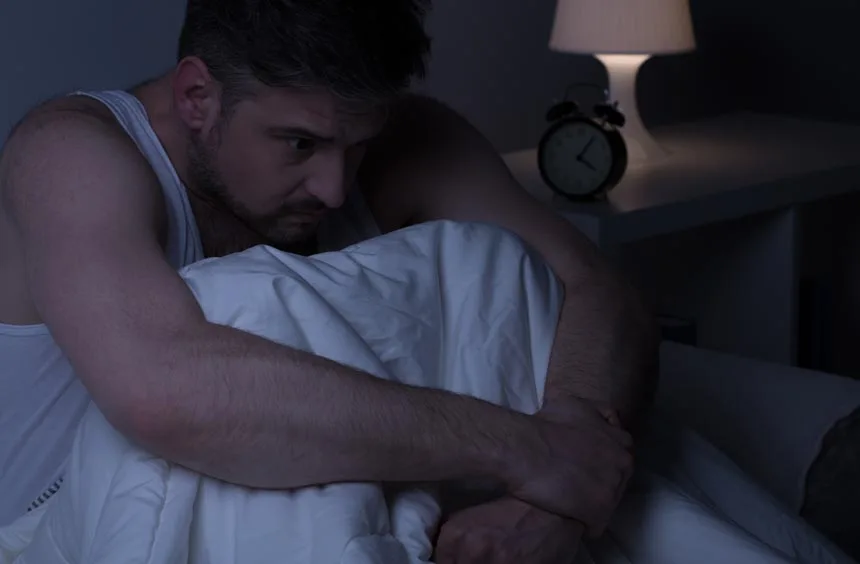If you asked the public their opinion regarding the most frightening substance abuse issue, they’d probably reply with answers like “heroin” or “meth.” You would almost certainly hear responses consisting exclusively of what are usually called “hard drugs.” The need for benzodiazepine addiction treatment is not even on most people’s radar.
In reality, one of the most frightening substance abuse disorders doesn’t include an opioid or an amphetamine. It’s not purchased on the streets, nor is it even illegal.
Benzodiazepine abuse disorder is quite possibly the scariest addiction for several good reasons. First, the withdrawal period of benzos can be deadly. Benzos share that characteristic with alcohol – the only substances with a detox period that can kill.
Get Medical Help for Benzos Today!
Second, how benzos rewire your brain is just as frightening as recovery, and returning to everyday life can be difficult. This is mainly because it affects your brain chemistry and partially because the withdrawal is so intense that many users find it challenging to see detox through to recovery.
This article will highlight benzodiazepines to give you a better idea of what they are and why their abuse is so frightening, as well as the proven methods of treatment offered at Catalina Behavioral Health.
What Is a Benzodiazepine?
A benzodiazepine is a sedative prescription drug that has anti-anxiety effects, typically prescribed to individuals for anxiety and panic disorder and off-label for seizures and alcohol withdrawal. Benzos work by acting on the GABA receptors in the brain, resulting in a much lower level of anxiety after ingestion.

Some of the most commonly prescribed benzodiazepines include:
- Ultra-short acting – Midazolam (Versed), triazolam (Halcion)
- Short-acting – Alprazolam (Xanax), lorazepam (Ativan)
- Long-acting – Chlordiazepoxide (Librium), diazepam (Valium), Clonazepam (Klonopin)
Benzos are marketed and sold under various generic and brand names, and thousands have been created over the years. However, only about 10-15 stuck around to continue time on the market.
What Are the Side Effects of Benzodiazepines?
Benzodiazepines are generally considered safe for short-term use when taken as prescribed by a physician. However, they are not meant to be used for more than a few weeks to a few months at a time.
Most aim to alleviate symptoms that often necessitate subsequent psychological or medical intervention. For example, persistent insomnia may be caused by an underlying physical or mental health issue that can be safely treated with treatment or other pharmacological approaches. ‘
Benzodiazepines may have short-term adverse effects, such as:
- Fatigue
- Confusion or memory loss
- Lack of control over motor functions
- Blurry or cloudy vision
- Slurred words and phrases
- Breathing slowly
- Weakness in the muscles
These are the short-term side effects of immediate benzo use. However, after extended periods of use, far more significant effects await users.
Do Benzodiazepines Cause Withdrawal?
If you use benzodiazepines as prescribed, you are unlikely to have withdrawal symptoms. As a one-time dose, follow your doctor’s instructions on administering them.
In contrast, long-term use of benzodiazepines leads to dependence. Stopping or reducing your dosage may result in unpleasant bodily effects. You may feel overwhelmed without them, and the lack can lead to withdrawal if you don’t take them.
As a result of benzodiazepine withdrawal, you may suffer some or all of the following:
- Constipation
- General fear
- Signs of anxiety include muscular tension, chest tightness, rapid heartbeat, excessive perspiration, and shaking or trembling, among other things.
- Inability to concentrate
- Vertigo
- Aches and pains in the head and neck
- Headache
- No desire to eat
- Intense depression
- Nausea
- Vivid nightmares
- Extreme panic
- Restlessness
Some of the most intense side effects that take place during the worst period of withdrawal include:
- Tremors
- Hallucinations
- Seizures
- Death
The more time you spend using benzodiazepines, the more difficult it will be to stop and the greater the danger of experiencing withdrawal symptoms. It may be tough to stop if you’ve been on short-acting benzodiazepines for an extended period.

When you quit using benzodiazepines, you should lower your dosage gradually if at all feasible. As a result, the probability of withdrawal symptoms is reduced.
Coming off benzodiazepines might lead to depression in some people. Your doctor may prescribe antidepressants if you’re experiencing these signs of depression. Research shows that SSRI antidepressants do not help treat depression after stopping benzodiazepines, although this has not been confirmed.
Licensed Addiction Treatment
How Does Benzodiazepine Addiction Treatment Work
- Stabilize yourself physically as the first step. Clients often seek help for benzodiazepine addiction when they are in a life-threatening situation. It may be essential to stabilize them in a medical emergency, such as an accident, an overdose, or a psychotic episode induced by intensive drug use, to guarantee that they are not at risk of harming themselves or others.
- Analyze and evaluate your findings. Clients can begin the process of evaluation and assessment after being stabilized in treatment, which will give a medical and therapeutic history to influence a treatment plan that can be tailored to the individual’s specific needs. This may involve a comprehensive medical evaluation to identify acute and chronic medical conditions that may have gone unnoticed or untreated, mental health diagnoses, and behavioral and learning difficulties.
- The third step is to stop abusing the drugs. Benzodiazepine detoxification can cause severe withdrawal symptoms, both physically and psychologically. Medical detox takes up the first 1-2 weeks of recovery for most patients. Aside from this, clients will be able to receive psychological assistance and therapy. However, the first focus is on medical monitoring and ensuring that the patient is as comfortable as possible until the symptoms subside and they are no longer physically dependent on the medication.
- Deal with any relapses of panic attacks. People who take anti-anxiety medications are more likely to feel rebound anxiety after they stop using them, whether or not they have an addiction to the prescription. If this happens to a patient experiencing withdrawal symptoms, they must have quick access to medical care and mental health therapy.
- Treat any underlying trauma that may be present. Anxiety is common among those who have been traumatized. Anxiety and benzodiazepine addiction may have been exacerbated by childhood trauma, regardless of whether the person was a victim or a witness to continuous abuse. This must be appropriately investigated and treated in therapy.
- Address any co-occurring conditions. Treatment for benzodiazepine addiction can and should address associated mental health concerns such as social anxiety, depression, generalized anxiety, mood disorders, and panic disorder. It’s hard to adequately treat either of these conditions when they’re intertwined.
- Participate in peer support activities. Developing a solid peer group in treatment may provide several benefits, including learning from ot
- hers’ experiences, discussing one’s struggles, receiving support, and providing assistance in return. It is possible to connect with individuals struggling to maintain their health by participating in support groups, 12-Step meetings, or even just being in treatment with others.
- Next, include your loved ones. Recovering addicts benefit much from the support of their families, who can help them remain on track and learn how to cope with the challenges of independent life. Loved ones should be educated about the disease and given the assistance they need to seek treatment for their addiction-related concerns. Family members can benefit from support groups by learning more about codependency and how to effectively establish medical boundaries with loved ones to help all parties involved.
- Protect yourself from relapsing into old habits. To be able to cope without the use of benzodiazepines, people must learn new ways to cope with stress, anxiety, and boredom without resorting to substance abuse. Clients in relapse prevention groups can learn how to identify and avoid relapse triggers and develop a strategy for dealing with those challenges without resorting to substance abuse.
- Implement a follow-up care and assistance strategy. Detox and therapeutic intervention are vital to stabilizing a client’s recovery, but aftercare and support that follow treatment is the foundation that holds everything in place. It’s too simple to go back into old habits if you don’t keep up with recovery principles and surround yourself with individuals encouraging a sober lifestyle. Clients who remain engaged in their recovery and linked to a strong peer support network have the best chance of making a new start in sobriety.
Following these steps in medically assisted detox and rehab settings is critically important. Significant dangers exist to cold turkey detox at home.
The Risk of Cold Turkey Detox from Benzodiazepines
Cold turkey detox from benzodiazepines is hazardous – possibly the most dangerous dynamic of the abuse situation. Clients can have seizures, heart attacks, stroke, and even lose their lives.
The risk exists in not having immediate medical professionals on hand in case the situation turns for the worst. In medically assisted detox, medical staff is constantly present to medicate and stabilize any clients with more severe side effects.
Importance of Medical Detox for Benzodiazepines

Medical detox is essential for benzo’s recovery. The most crucial element is the client has constant medical supervision.
This prevents any negative physical consequences. However, the mental element is equally important. Clients who don’t participate in medically assisted detox are left to their willpower at home.
Aside from the physical dangers, this also presents a considerable risk of relapse. When the withdrawal symptoms become too severe to face without medical assistance, a client first looks for benzos to ease the pain.
With the right team during our medical detox, clients are kept comfortable enough to avoid the most severe feelings and side effects of withdrawal, which results in a much higher success rate.
Post-Acute Withdrawal from Benzos
Post-acute withdrawal is the next phase of importance that clients must be educated about. These will likely occur during the inpatient or outpatient rehab phase and after.
These withdrawals are all mental and are usually brought on by some trigger that reminds the client of using. Post-acute withdrawals are the sudden return of withdrawal symptoms but are incredibly short-lived.
Regardless of how temporary these symptoms are, they put clients at a high risk of relapse post-treatment. This is when having a solid support system comes into play and someone you can speak with if you feel like using it.
Help For Benzodiazepine Addiction
Finding Benzodiazepine Addiction Treatment Centers
Finding benzodiazepine addiction treatment centers is vital for anyone looking to achieve recovery. Finding the most appropriate facility that caters to your needs is essential.
If you’re looking for integrated care, it’s best to find a holistic rehab like Catalina. If you’re experiencing other mental health disorders with your substance abuse disorder, which is likely with benzo abuse, you want a facility that offers dual diagnosis treatment.
At Catalina Behavioral Health, we offer all of these programs and more.
Long-term Recovery is Found Here
At Catalina Behavioral Health, we believe in long-term recovery for all of our clients. With the right personalized treatment plan and combination of therapies, we can help you get your life back on track.
We work closely with families to ensure optimal client success post-treatment and offer a wide range of services. Contact a member of our admissions team today to find out how we can help you reclaim your independence.







